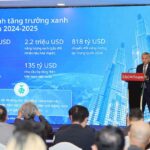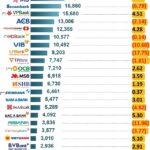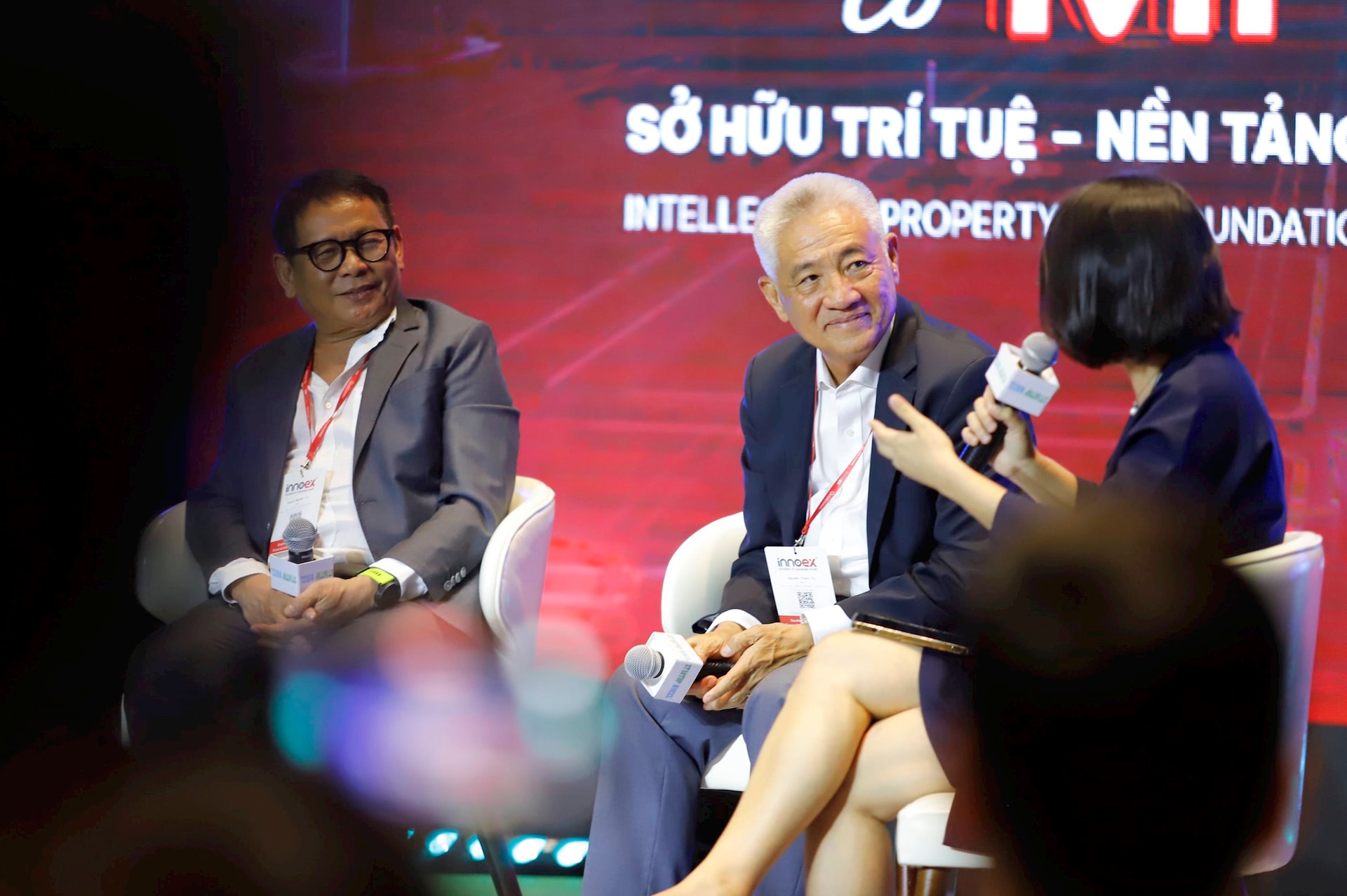
Intellectual Property Protection: The Foundation of Innovation
In the knowledge economy, intellectual property is the fuel that drives innovation and enhances national competitiveness. Leading technology corporations worldwide have succeeded by turning inventions into exclusive advantages through robust Intellectual Property (IP) Protection strategies.
For Vietnam, which is undergoing a significant transformation in innovation, raising awareness and skills in IP Protection is a prerequisite for deeper integration into the global value chain.
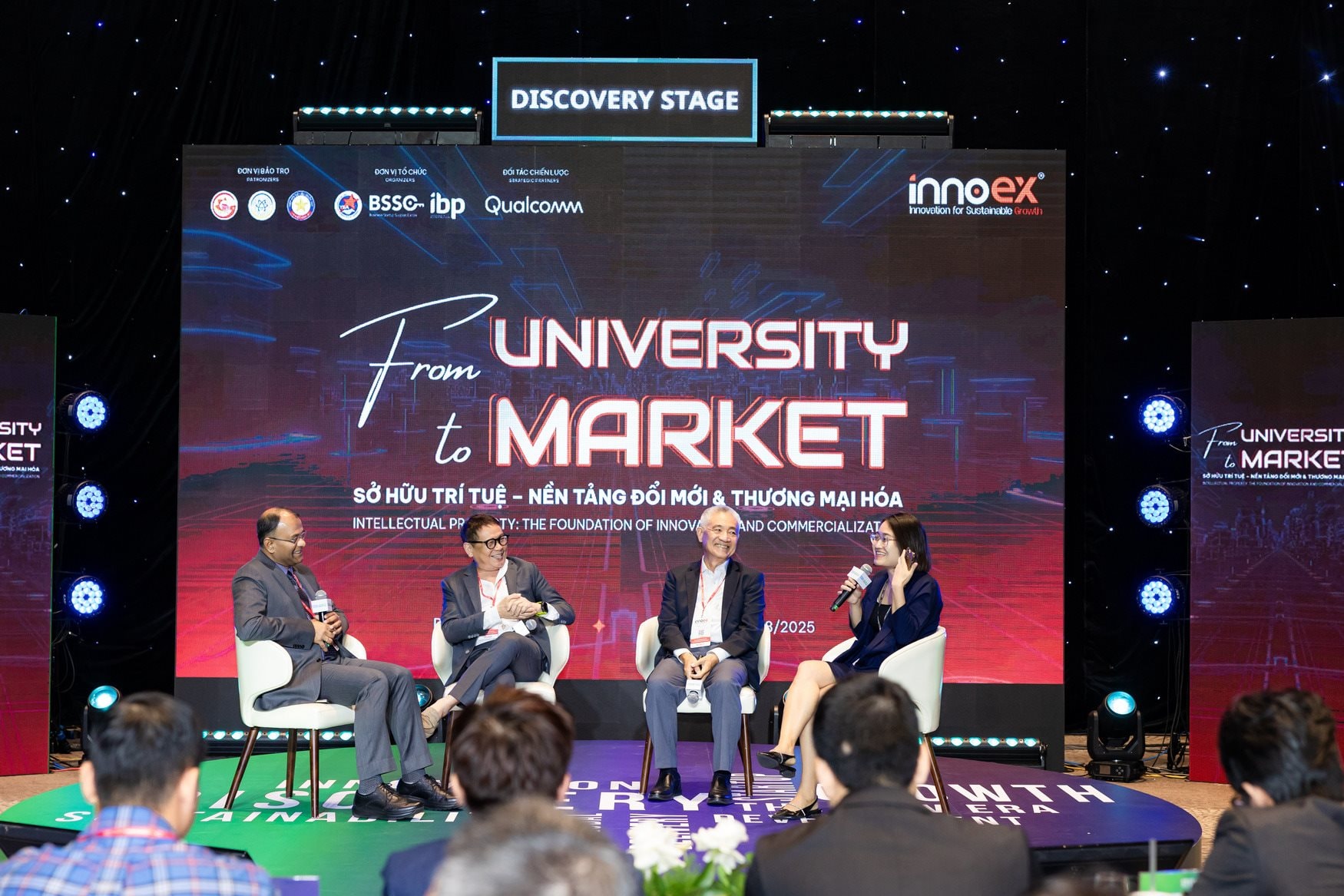
“All economies go through four stages of development – consumption, production, design, and innovation. Only by mastering and knowing how to protect intellectual property can a country break through,” said Mr. Sudeepto Roy, Vice President of Technology at Qualcomm, at the From Lab to Market discussion – Story from Lab to Market.
As part of the International Forum and Exhibition on Innovation – InnoEx 2025, this is a new research model initiated, gathering experts, scientists, and business leaders from home and abroad.
“The Lab2Market initiative by InnoEx has broken the traditional model – when the market breath is brought directly into the Labs, and vice versa, knowledge from Labs is shortened. The journey to the market,” emphasized Ms. Truong Ly Hoang Phi, Head of InnoEx Organization.
Commercializing inventions not only brings profits but also helps businesses assert their position in the international market. The reality in Vietnam shows that many creative technologies have not been effectively exploited, leading to resource waste. The successes of domestic entrepreneurs are clear evidence of the power of IP mastery.
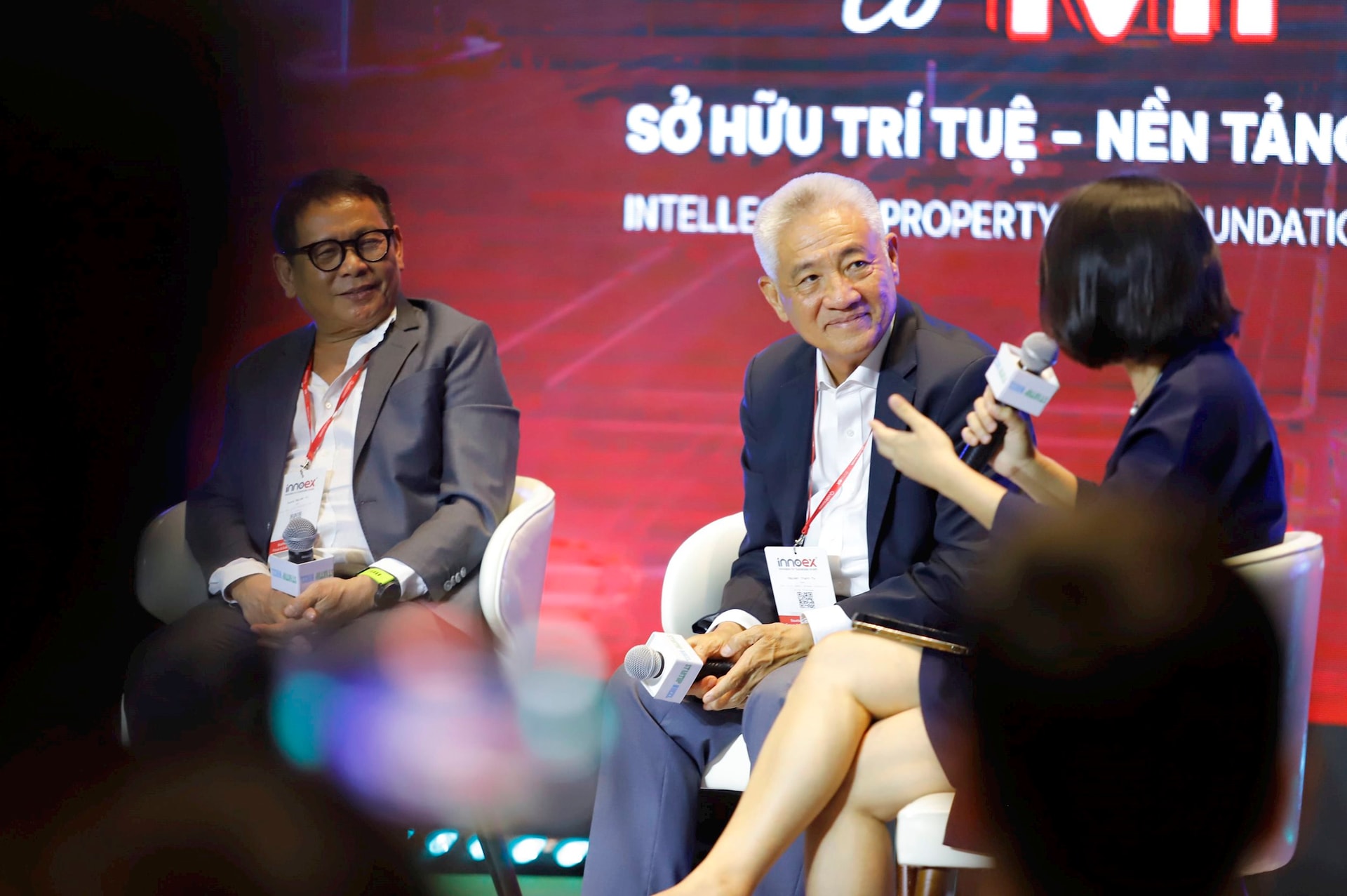
Dr. Nguyen Thanh My, Chairman of RYNAN Technology Vietnam
Dr. Nguyen Thanh My, Chairman of RYNAN Technology Vietnam, shared that IP is not just about protection but also about increasing the company’s value. In the past, with just two patents licensed to a Chinese company, he earned nearly $300 million.
“Twenty-two years ago, I went to China. They wanted to license my patent for 20 years, and they paid me almost $300 million.” From this experience, he emphasized: “The best way to monopolize a product is through IP. Without IP, it is challenging for businesses to enter the international market.”
Innovation is not only associated with economic profits but also carries a social mission: creating new knowledge, solving community problems, and improving the quality of life. Many initial studies cannot be commercialized immediately but play a fundamental role in future technological breakthroughs.
“Not all works can or need to be commercialized immediately. The core value of research is to create new knowledge – the foundation for future inventions and solutions. Innovation is not just about making money but about bringing positive changes to social life,” said Prof. Duong Nguyen Vu, Vice President of VinUniversity.

Prof. Duong Nguyen Vu, Vice President of VinUniversity.
The Role of University-Enterprise-Government Collaboration
Experience from advanced countries shows that the “triangle cooperation” model between universities, enterprises, and governments is the key to shortening the distance from research to application. This collaboration ensures that scientific works quickly become products of economic and social value.
The speakers at InnoEx agreed that only with a strong connection between universities, businesses, and governments can research truly step out of the lab and become practical solutions for the market.
To achieve this goal, InnoEx 2025 announced a strategic collaboration with many Institutes and Universities nationwide to build a cohesive ecosystem of training – research – practical application. This is considered an important step in the journey of creating Vietnam’s future of innovation.
The schools currently participating in promoting the Lab2Market initiative include: Nguyen Tat Thanh University, Ho Chi Minh City University of Industry, Ho Chi Minh City University of Technology – VNU-HCM, Ho Chi Minh City University of Industry, and International University – VNU-HCM.
In addition, Qualcomm also announced the “Learn to Protect Vietnam” program – a free online course on four types of IP (patents, copyrights, trademarks, and trade secrets), expected to be launched in October 2025 in both Vietnamese and English.
Mr Lim Dyi Chang (UOB): Green Transformation Clears the Path for Vietnamese Businesses to Access Capital
The proactive shift towards a green economy is not just an environmental imperative but also a key strategy for Vietnamese businesses to enhance their competitive edge and tap into the billions of dollars of investment capital waiting on the sidelines.
The Vietnamese Economy Over 80 Years: From Founding to the Age of Rising
The Vietnamese economy’s 80-year journey is a testament to the nation’s resilient spirit, innovative vision, and aspiration for advancement. However, new challenges lie ahead, including the middle-income trap, the pressures of green and digital transformation, and the imperative for institutional breakthroughs. These are not merely economic issues but also a historical call to action to propel Vietnam into a developed and prosperous nation by 2045.
The Ultimate Showdown: Bestune Pony vs Wuling Mini EV – Which Electric Mini Steals the Hearts of Gen Z?
Compact, cute, and affordable, the Bestune Pony and Wuling Mini EV are two compelling options for Gen Zers looking to dip their toes into the electric vehicle scene.

